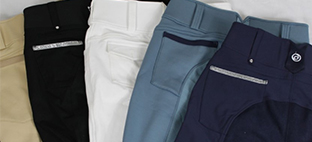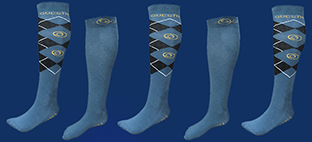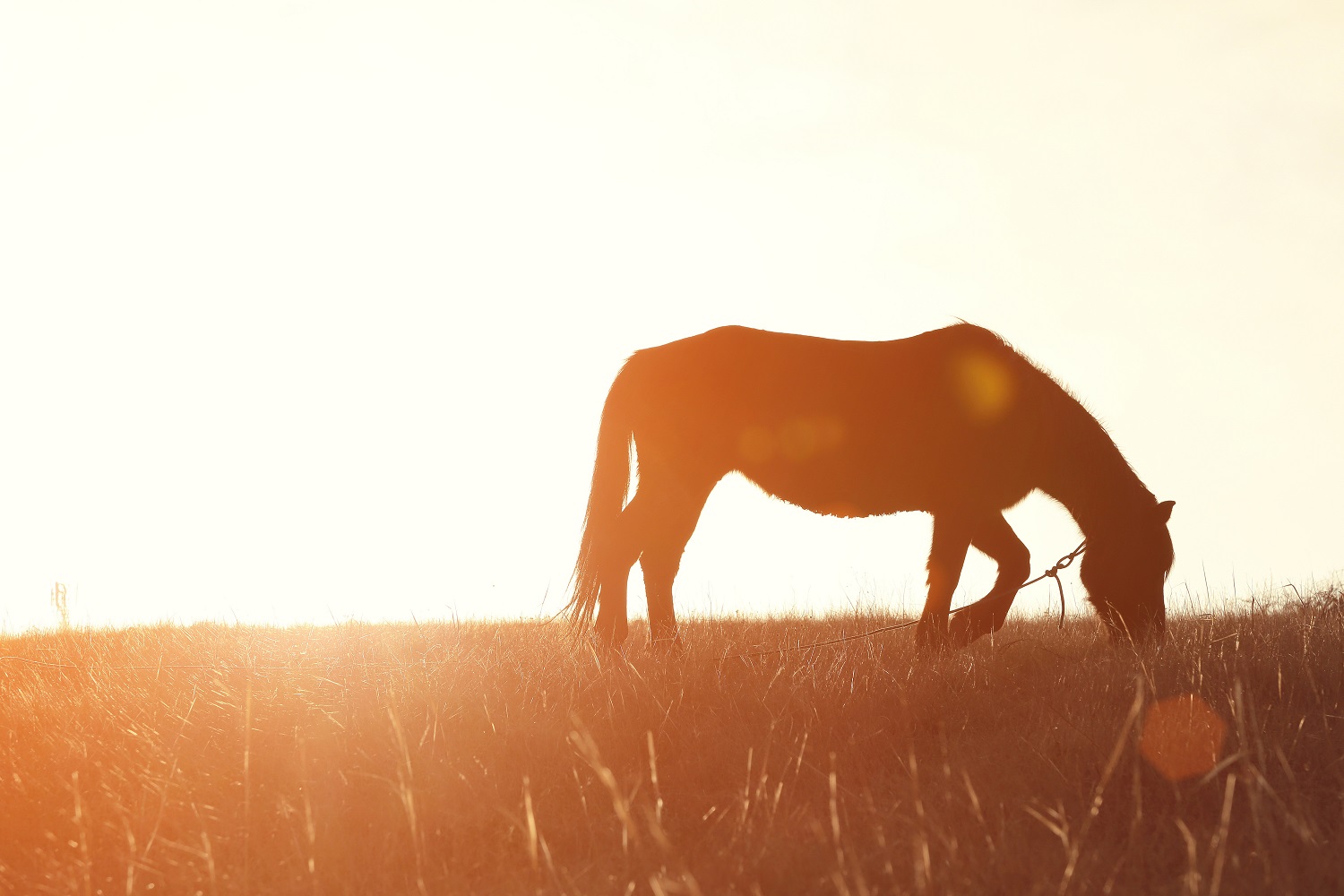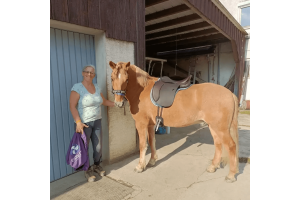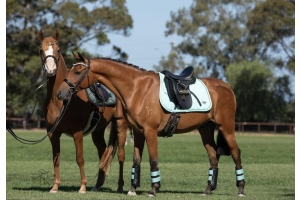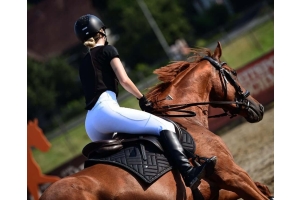Caring For Horses During Hot Weather
UK summer heatwaves are HOT, to say the least, and if we humans are just about bearing the otherwise unbearable heat, horses also struggle during 30-degree days. Our team at Questra Sports wrote this article on the 17th of June, our first UK heatwave of 2022, and probably many more to come this summer. So if you’re worried about your horse overheating during hot and steamy UK summers, this read is for you!
Horses sweating is a natural cooling process. Horses generally keep cool through sweating. Their sweat evaporates off the skin's surface, providing a cooling effect. When the humidity is high, sweat evaporates less. A horse actively working in a hot condition might sweat 2 to 4 litres each hour.
Horses can adjust to hot and humid circumstances. The ability of the horse to cool itself is affected by temperature and humidity.
Summer is a regular-season for heat-related problems, but unexpectedly warm weather can cause overheating, especially in horses who are out of condition and have thick, heavy coats.
As the weather starts to heat up, it's important to take extra care of your horses. Caring for a horse is necessary, as is offering horse needs and appropriate equine care. You as an owner must give your horse more attention during hot weather to alleviate stress and keep their nutrition and well-being.
Overheating can be caused by:
- Hot weather
- High relative humidity
- Inadequate barn ventilation
- Continuous sunlight exposure
- Excessive exertion
- Transportation
- Overweight
Heat effects on horses
Heat Stress (Symptoms)
- Skin fold test
- Horses' heartbeat rate has increased.
- The breathing rate has increased.
- Sweating profusely.
- Ears which droop.
- Tiredness.
- Dehydration.
- After compressing the skin of the neck or shoulders, the skin forms a fold that lasts several seconds.
- Feed intake has been reduced.
Bodyweight loss can occur when feed intake is lowered and metabolism shifts when it is the hot season.
When taking care of a horse during extreme heat, keep track of their feed intake, physical condition, and body weight, especially for skinny, aged, and young horses. If you detect changes in their body condition or loss of weight, consult a nutritionist or veterinarian for you to know what your horse needs.
Heat Stroke
Heat Stroke is a severe overheating problem that can develop in horses when they are worked extremely hard in intense heat or humidity. If you feel your horse is suffering from heat stroke, inform your veterinarian immediately.
Heatstroke Symptoms
- The rectal temperature reaches above 106 F.
- Rapid heartbeat and breathing rates do not decrease after 20 minutes of rest.
- Whining and anguish.
- Fatigue with dry mucosal surfaces and skin folds lasting 4 to 10 seconds.
- Muscle exhaustion.
- Misbehaviour.
- Breakdown.
Treatment
Heat stress and heat stroke in horses require urgent cooling.
Heatstroke is a medical emergency that requires prompt veterinary care. Treatment entails:
- Stopping all physical activity.
- Preventing the horse from the sun
- Making use of fans.
- Spraying ice water on the horse to keep it cool.
- Supplying cool, pure water
- Increasing the availability of electrolytes.
- A veterinarian will frequently administer intravenous (IV) water and electrolytes.
Along with those causes and symptoms, here are 5 tips on taking care of a horse to keep them healthy and comfortable during hot weather by providing them with proper horse needs and equine care.
1. Provide Plenty of Shade and Access to Clean Water
A horse needs access to plenty of fresh water and shade in order to stay cool and hydrated. If you don't have a barn or shelter for your horse, consider setting up a portable shade structure in their pasture. Make sure the shade structure is big enough so that your horse can move around freely inside it, and that it's made from breathable material to allow air circulation. Be sure to check the temperature inside the shade structure regularly to make sure it's not too hot.
When taking care of a horse, always provide a continuous supply of clean, cold (45 to 64 F) freshwater. When resting, an adult horse in a cold environment will drink 6 to 10 gallons of water per day, depending on the horse's needs and feed. They will drink substantially more while performing or in hot weather. A horse's stomach can store 2 to 4 litres of liquid without getting bloated.
Letting a hot horse a few sips of cold, clean water every few minutes is helpful for minimizing the effects of drought stress.
Use clean water buckets and containers more frequently in hot weather to avoid algae and germs from forming. Blue algae poison is more likely in ponds or slow-moving waterways throughout the hot, dry season.
2. Offer Frequent Cooling Sessions
Heat stress can influence any horse, although it is more prevalent in elderly, obese, or out-of-shape horses. Heat discomfort and exhaustion are more common in young foals.
When the combined humidity and temperature exceed 150, do not ride a horse as it is an important key point of equine care. When taking care of a horse and you must really ride them in heat and humidity, or if you reside in a hot and humid climate, it is critical that you follow some of these equine care guidelines:
- Make changes to your schedule (ride early in the morning or late at night).
- Maintain a mild workload and take regular rests to allow the horse to settle down and restore a normal respiratory rate. Don't push the horse past its level of fitness.
- Natural sweating should be maintained.
- Make use of fans to provide ventilation and train the horse in the shade if possible.
- Provide constant availability to cool, clean drinking water and offer water regularly while working. There's no excuse to refuse water from a heated horse.
- If your horse stops sweating, breathes excessively, or becomes lethargic, upset, or clumsy, contact a veterinarian immediately.
Horses sweat to help regulate their body temperature, but during extreme heat, they can't always keep up. As part of horse needs and equine care, provide frequent cooling sessions to assist your horse in helping to stay calm and cool. This can be done by hosing them down with cool water or by giving them a sponge bath. You can also add some ice cubes to their water bucket to help keep it extra cool. Let your horse decide how long they want to stay in the cool water - if they start getting cold, simply move them to a warmer spot.
3. Provide Extra Forage
A horse needs access to plenty of forage (grass or hay) in order to stay cool and comfortable during hot weather. If your horse is on a dry lot or doesn't have access to grass, consider giving them extra hay. You can also soak their hay in water for a few minutes to help them stay hydrated.
4. Give Them Some Time Off
Horses are creatures of habit and usually like to stick to their usual routine. But when taking care of a horse during hot weather, it's important to give them proper equine care and a break from exercise and work. If possible, turn your horse out in the morning before the heat of the day and let them rest in the shade during the afternoon. If you must ride during hot weather, consider doing it early in the morning or late at night when it's cooler. And always be sure to offer your horse plenty of water before, during, and after exercise.
5. Consider Electrolytes
Consider giving electrolytes when taking care of a horse which has been panting excessively or is likely to do so. If you add electrolytes to their drinking water, make regular water available as well. Some horses dislike the taste of electrolytes and will consume less of them. Use only horse-specific electrolytes.
Hot weather can be tough when taking care of a horse, but with a little extra equine care, and appropriate horse needs, they can stay comfortable and safe. By following these equine care tips and horse needs, you can help your horse stay cool and comfortable during hot weather.
If you enjoyed our article, then check out the Questra Sports website and check out our other awesome reads!
